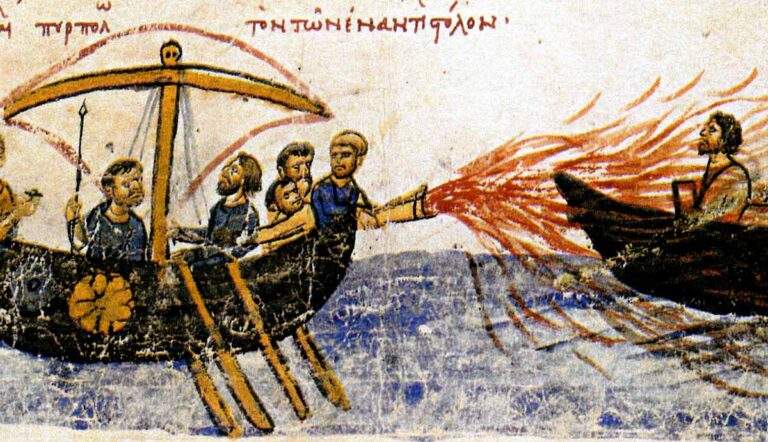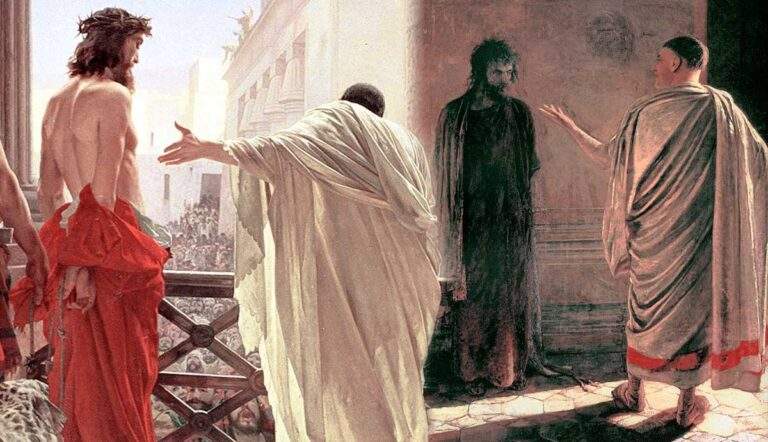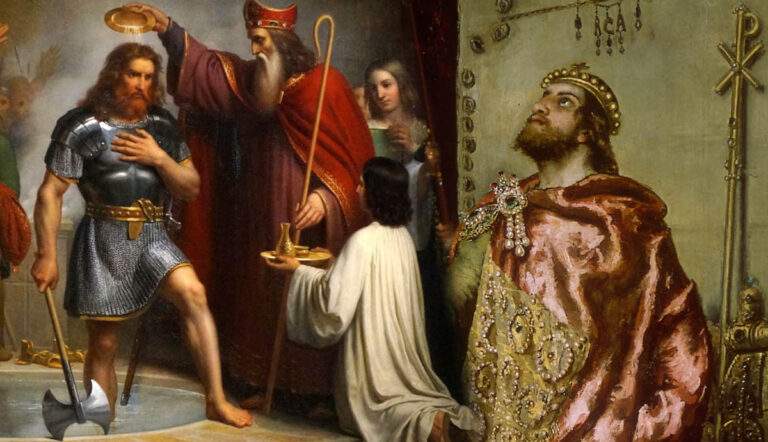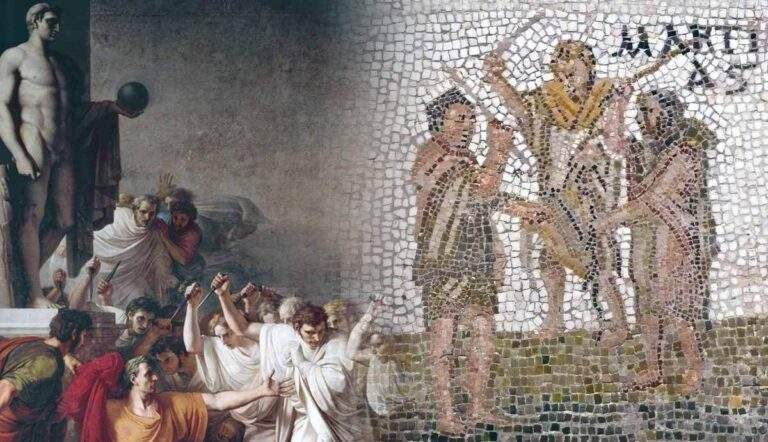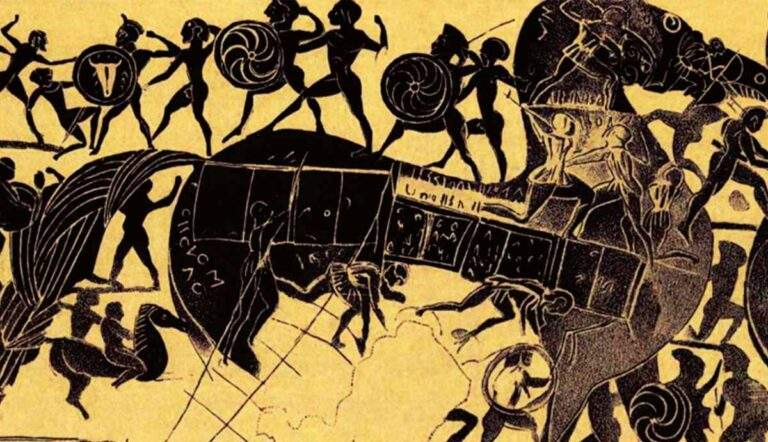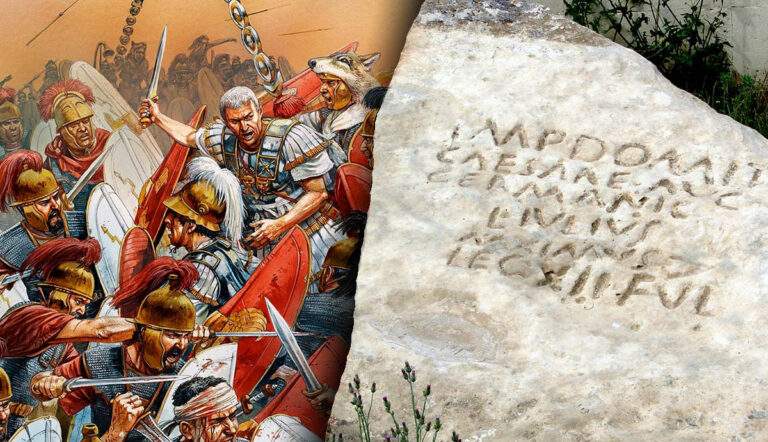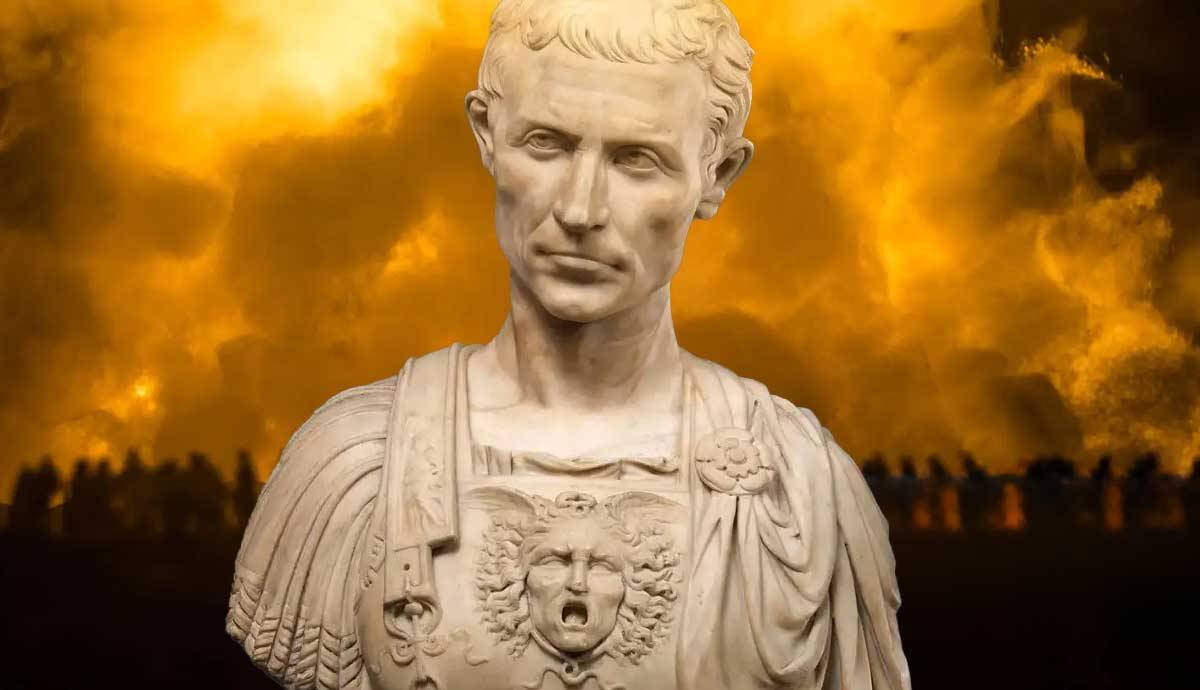
There are few historical figures as influential as Gaius Julius Caesar. A superb general and politician, Caesar played a pivotal role in transitioning Rome from a Republic to an Empire. Born into a prestigious aristocratic family, he entered politics early and led military campaigns that significantly expanded Roman territory. Caesar conquered Gaul, landed in Britain, and crossed the Rubicon, leading to victory over Pompey in the civil war. Appointed dictator for life, Caesar centralized power and enacted sweeping reforms, but his absolutistic tendencies alarmed the Senate. This fear culminated in his assassination on the Ides of March, in 44 BCE. However, Caesar’s influence endured, shaping political and military thought for centuries up to the present day.
Julius Caesar and His Illustrious Origins: The Scion of the Gods
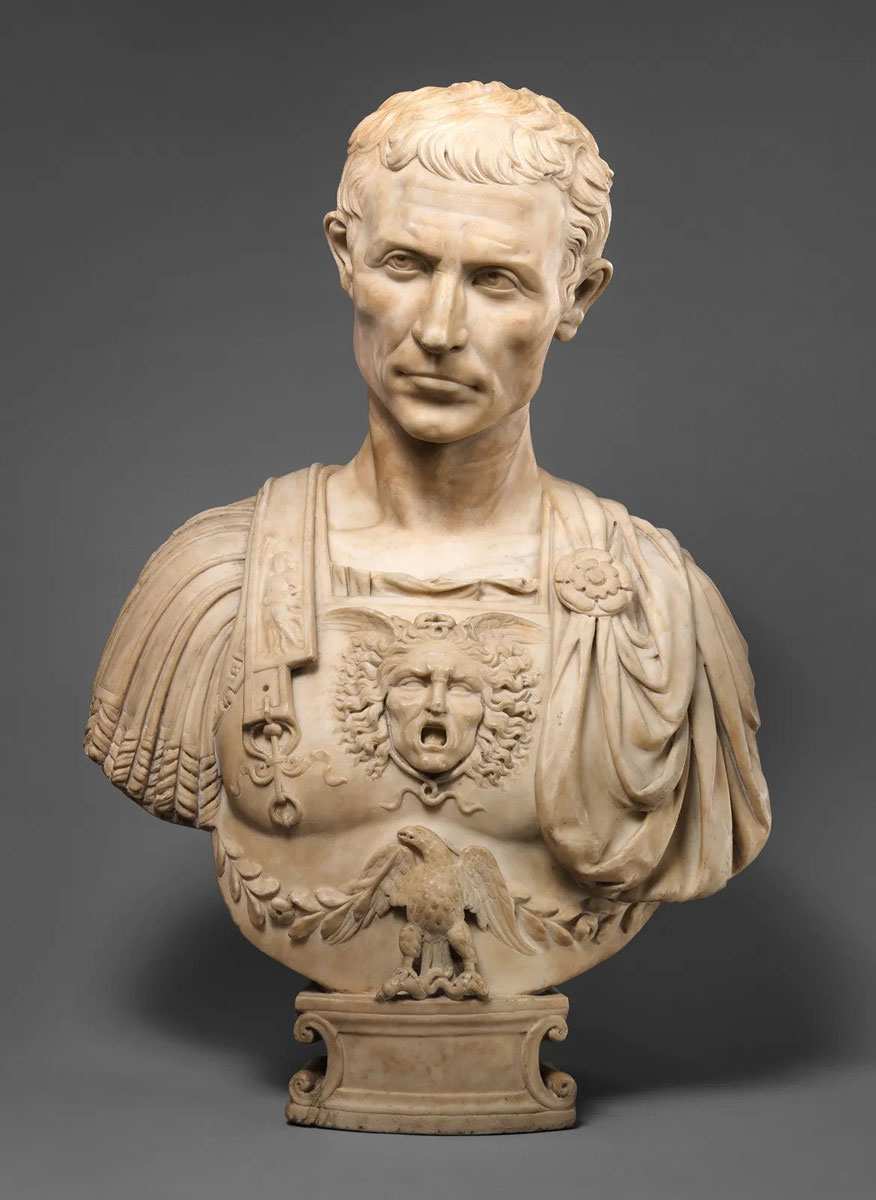
Gaius Julius Caesar was born around 100 BCE in one of the most prestigious Roman noble families. The gens Julia was one of few patrician families going back to the early Republic. The family traced its origins to the Roman Kingdom. They had to move to Rome from Alba Longa during the seventh century BCE when the third king—Tullus Hostilus—conquered their city.
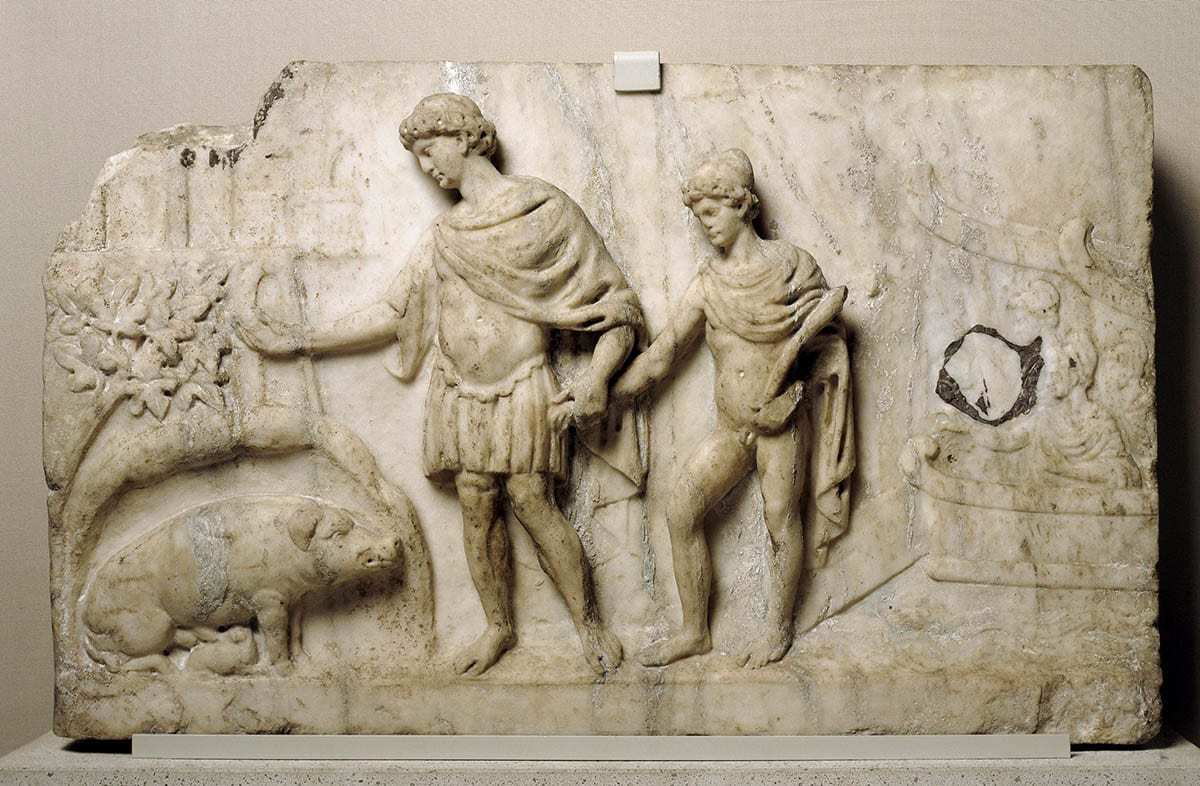
If we are to believe historian Livy, Julii also had a mythical origin, claiming descent from Iulus, son of Aeneas, one of the heroes of the Trojan War. Julius Caesar went even further, claiming to be a descendant of Aeneas’ father, Anchises, who was married to goddess Venus. To further solidify this claim, Caesar adopted the bull—one of Venus’ symbols—as the symbol of one of his legions. In 46 BCE, Julius Caesar dedicated a Temple of Venus Genetrix at the Roman Forum, reinforcing his divine origin.
The Rapid Rise to the Top: Caesar’s Early Career
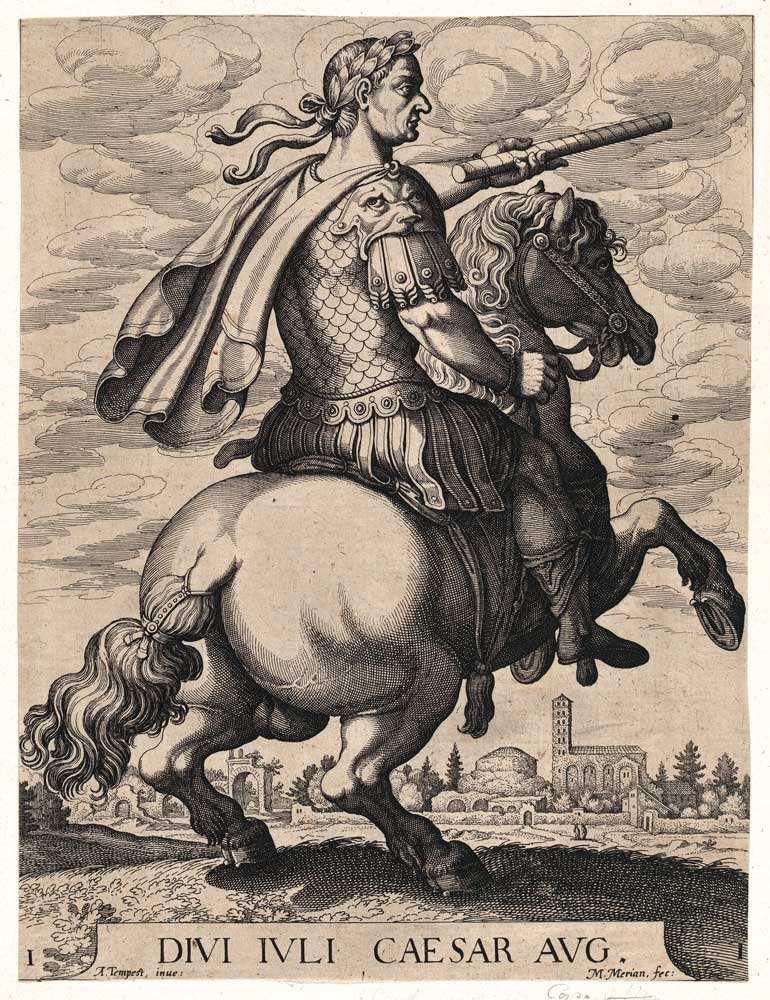
Get the latest articles delivered to your inbox
Sign up to our Free Weekly Newsletter
Julius Caesar’s early career was marked by political maneuvering and military achievements that foreshadowed his later rise to power. During his tenure in the East, he emerged as a brilliant leader, earning the prestigious civic crown (corona civica) for bravery at the Siege of Mytilene in 81 BCE. However, Caesar’s audacity shone when captured by Mediterranean pirates. Not only did he secure his release and pay his ransom, but he also turned the tables by raising a fleet, and capturing and crucifying his former captors. In 74 BCE, Caesar proved himself again while waging the war against Mithridates VI Eupator, the king of Pontus. Raising his own forces, Caesar defeated Mithridatic troops, further solidifying his reputation as a formidable military leader.
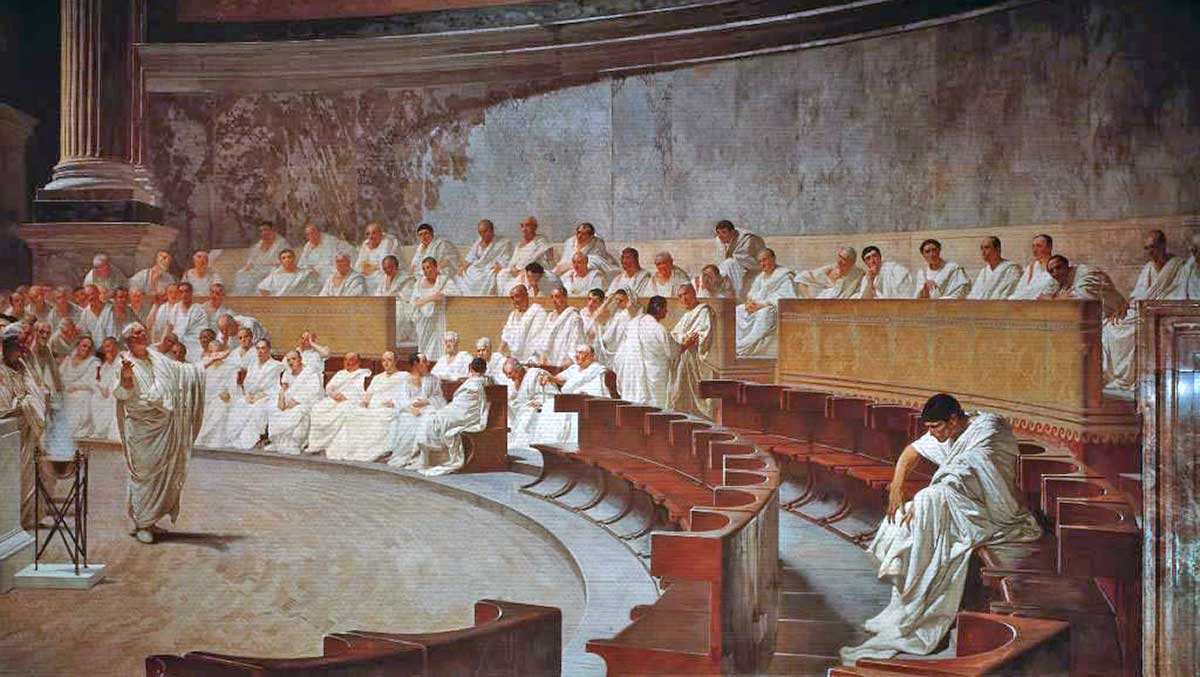
Beyond his martial achievements, Julius Caesar was an adept orator and shrewd politician. After defeating the pirates, Caesar was elected a military tribune, beginning his steady climb up the political ladder. His role as a quaestor in 69 BCE was followed by that of the pontifex maximus, a chief priest of Roman state religion. In 63, following the Catiline conspiracy that shook the Roman Senate, Caesar became a praetor, leading to his governorship of Hispania and, finally, his first consulship in 59 BCE. Caesar was now one of the most powerful men in the Republic.
The Magnificent Three: The First Triumvirate
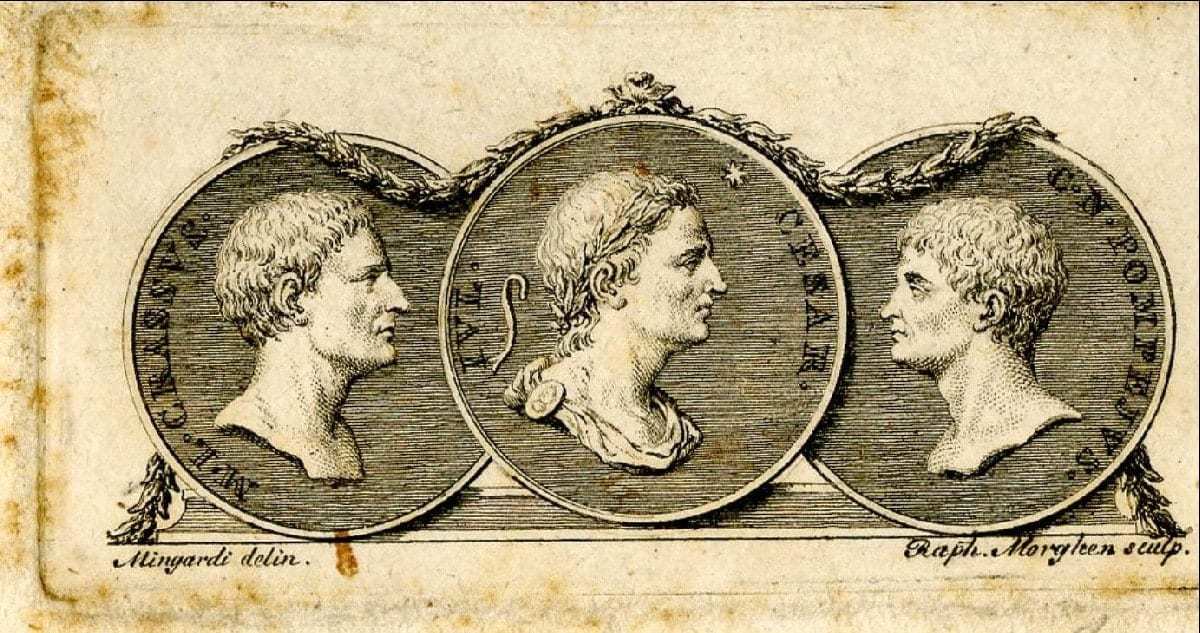
Despite his notable achievements, Julius Caesar faced resistance from the Senate, which viewed the ambitious man as a potential threat. Caesar had no love for the Senate. In the aftermath of the Punic Wars, Rome emerged as a dominant power in the Mediterranean, rapidly extending its reach. This expansion was accompanied by growing corruption among the ruling elite. In 63 BCE, one of the senators, Catiline, tried to seize control over the Republic but failed. Julius Caesar argued persuasively against the death sentence, but a speech by one of his political rivals, Cato the Younger, convinced the court to execute the conspirators.
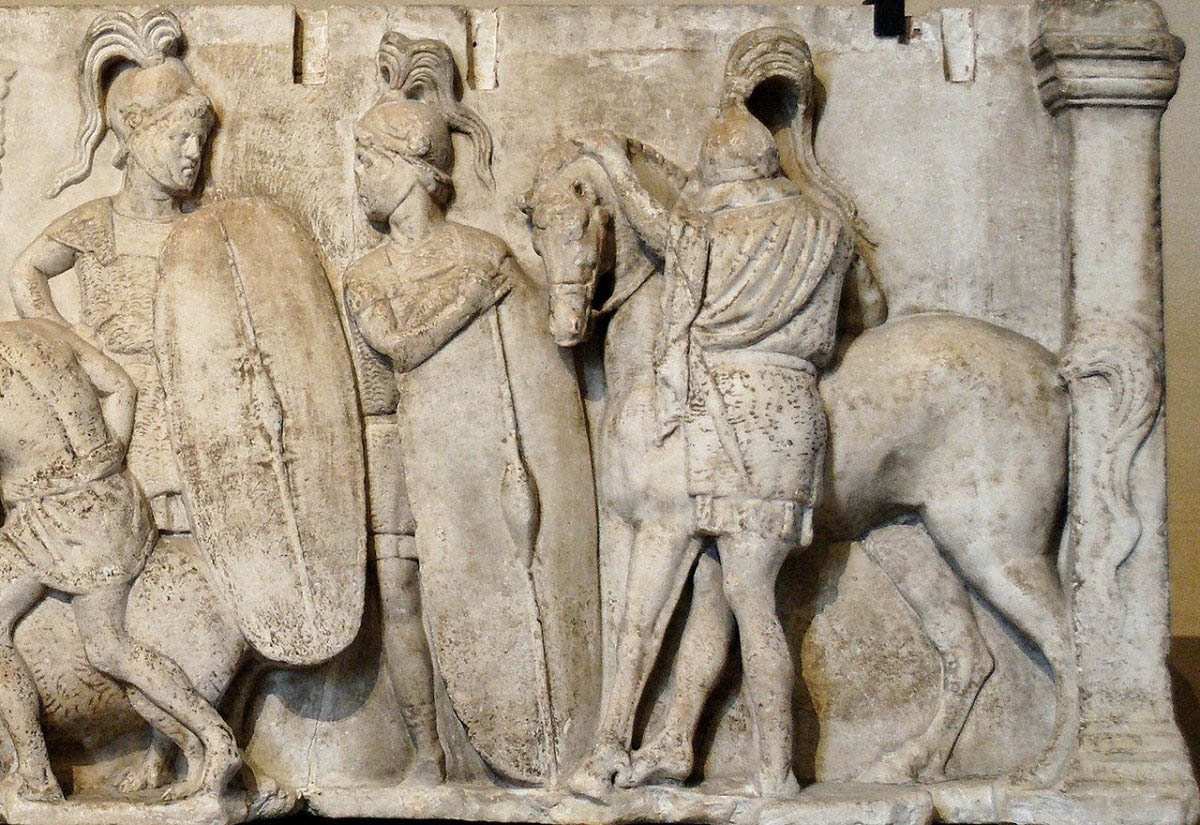
Determined to eradicate corruption and reform the government, Caesar formed an alliance with two other powerful men marginalized by the Senate: a successful general, Pompey the Great and the wealthiest man in the Republic, Marcus Licinius Crassus. This alliance, known as the First Triumvirate, allowed its members to advance their agendas within the Senate. It also gave each triumvir a power base and command over the Roman legions in their respective zones of control, allowing for grand military campaigns that further amplified their power and influence.
The Military Triumph: The Conquest of Gaul
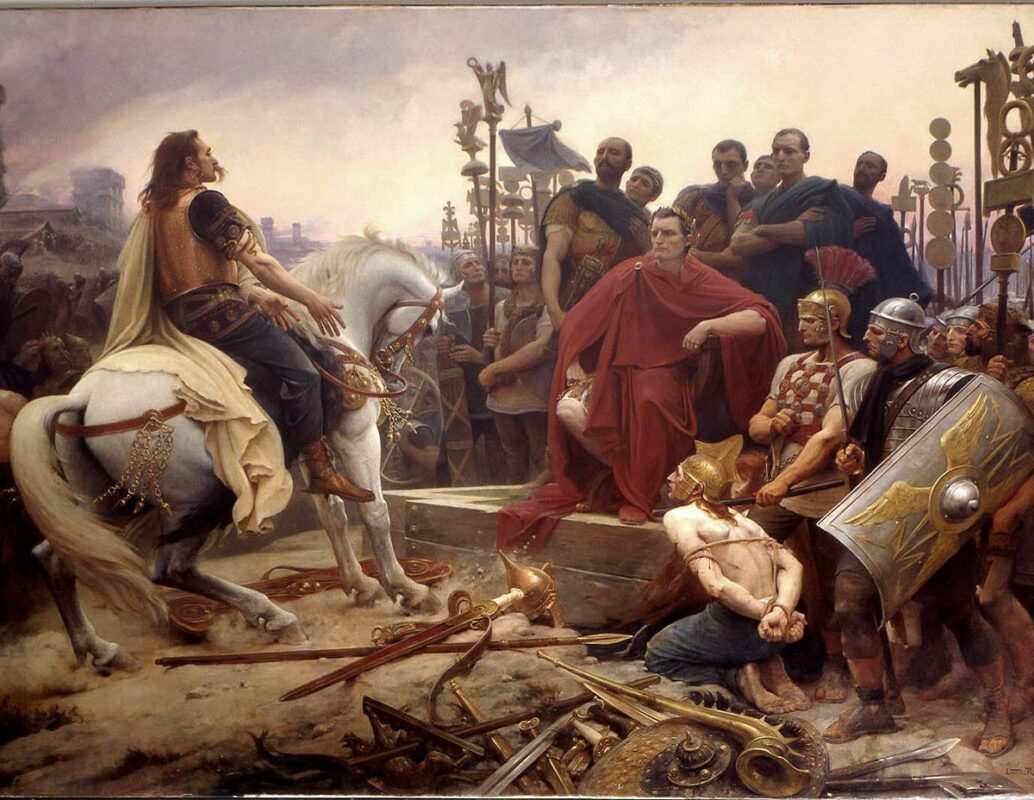
Julius Caesar used the Triumvirate to secure the governorship of both Cisalpine Gaul and Transalpine Gaul in 58 BCE. These regions were crucial as they provided a steady stream of legion recruits and served as a springboard for expansion beyond Rome’s northwestern borders. From 58 to 50 BCE, Caesar led a relentless campaign against the Gallic tribes, pushing Rome’s frontiers to the English Channel and the Rhine River. His military endeavors, including the Battle of Gergovia and the decisive Siege of Alesia, were chronicled by Caesar himself in De Bello Gallico, a principal narrative of the Gallic Wars. The conquest of Gaul not only marked a significant territorial extension for Rome but also cemented Caesar’s authority and garnered unwavering loyalty from his battle-hardened legions.
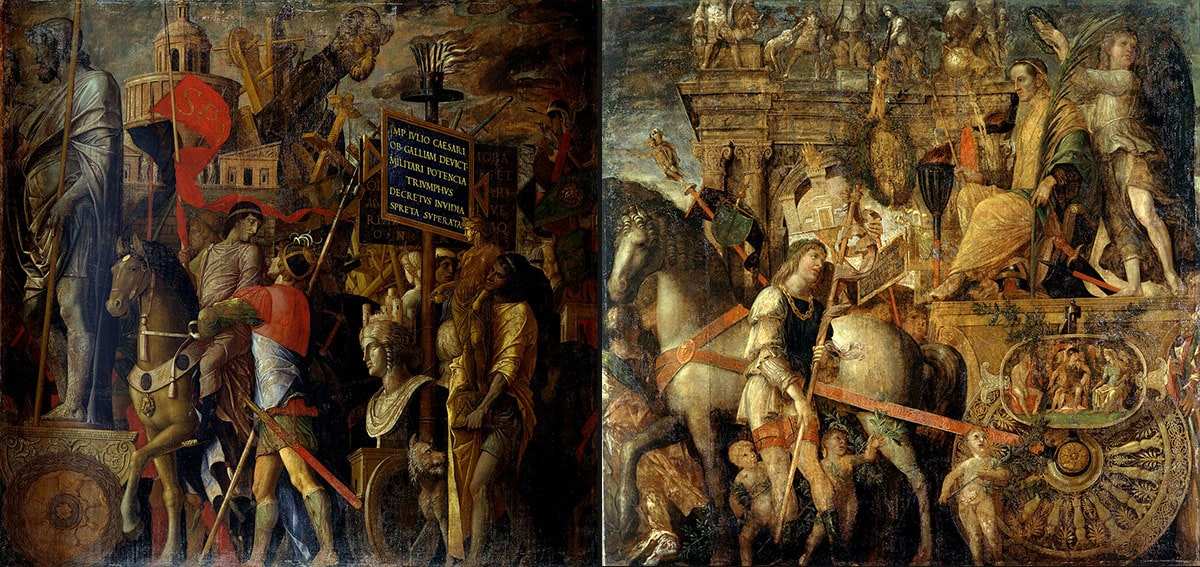
The victory in Gaul led to Caesar’s first of four triumphs in 46 BCE, with the former Gallic king Vercingetorix paraded through the streets of Rome in chains and then executed. Caesar did not stop in Gaul but further bolstered his influence with his incursions into Britain and Germania—unprecedented showcases of the Roman military might to the barbarian tribes. They were also a potent demonstration of strength to the Senate, which was increasingly worried about Caesar’s rising popularity as the Triumvirate began to disintegrate.
The Civil War
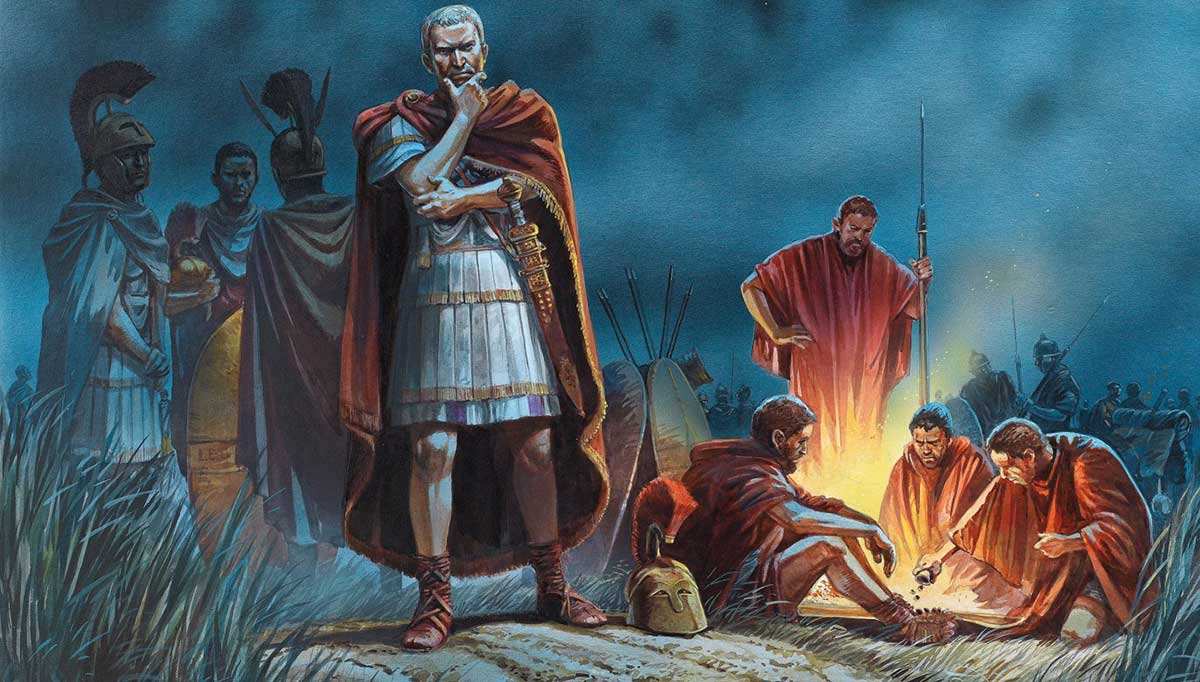
The Triumvirate, always an uneasy alliance, finally crumbled following the sudden death of Crassus during his failed Parthian campaign in 53 BCE. Fearful of Caesar’s victories, Pompey switched sides and allied with the Senate. But, when the Senate ordered Caesar to disband his troops and return to Rome, he refused. Either fearing prosecution or, more probably, the loss of the second consulship, Caesar made a fateful decision. Quoting the famous phrase (in Greek)—“let the die be cast,” in January 49 BCE, Caesar rode his favorite horse, and led his troops across the Rubicon into Italy.
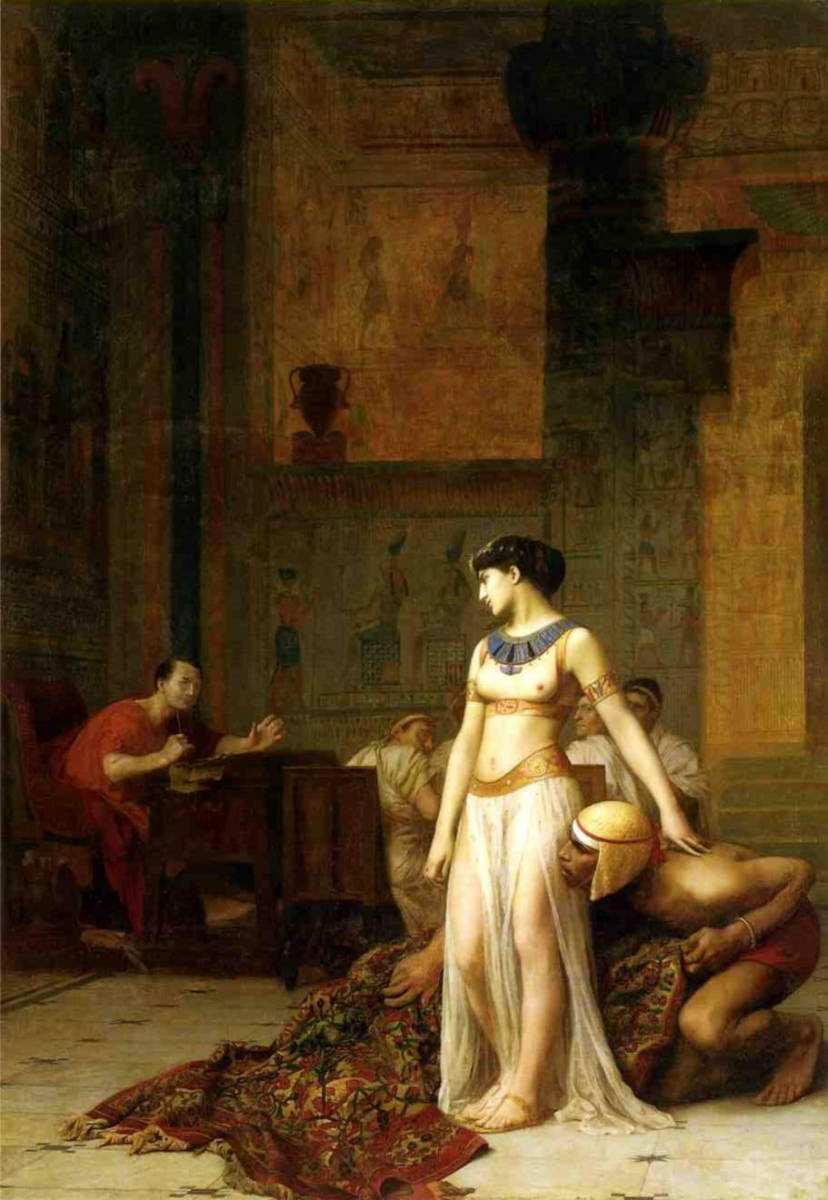
After the negotiations failed, Pompey fled Italy, along with most of the senators. Two years of brutal and bloody war followed, with Caesar’s and Pompey’s forces clashing on the battlefields of Spain, Greece and North Africa. Although outnumbered, Caesar’s legions defeated Pompey’s army in a decisive battle at Pharsalus, Greece, in 48 BCE. In a desperate bid for support, Pompey fled to Alexandria, seeking refuge with his allies, the Ptolemaic dynasty. But before he could even step ashore, he was murdered at the order of Pharaoh Ptolemy XIII. Caesar, however, sided with Cleopatra, defeating her brother at the Battle of the Nile and making her the master of Egypt.
The Master of the Roman World: The Dictator
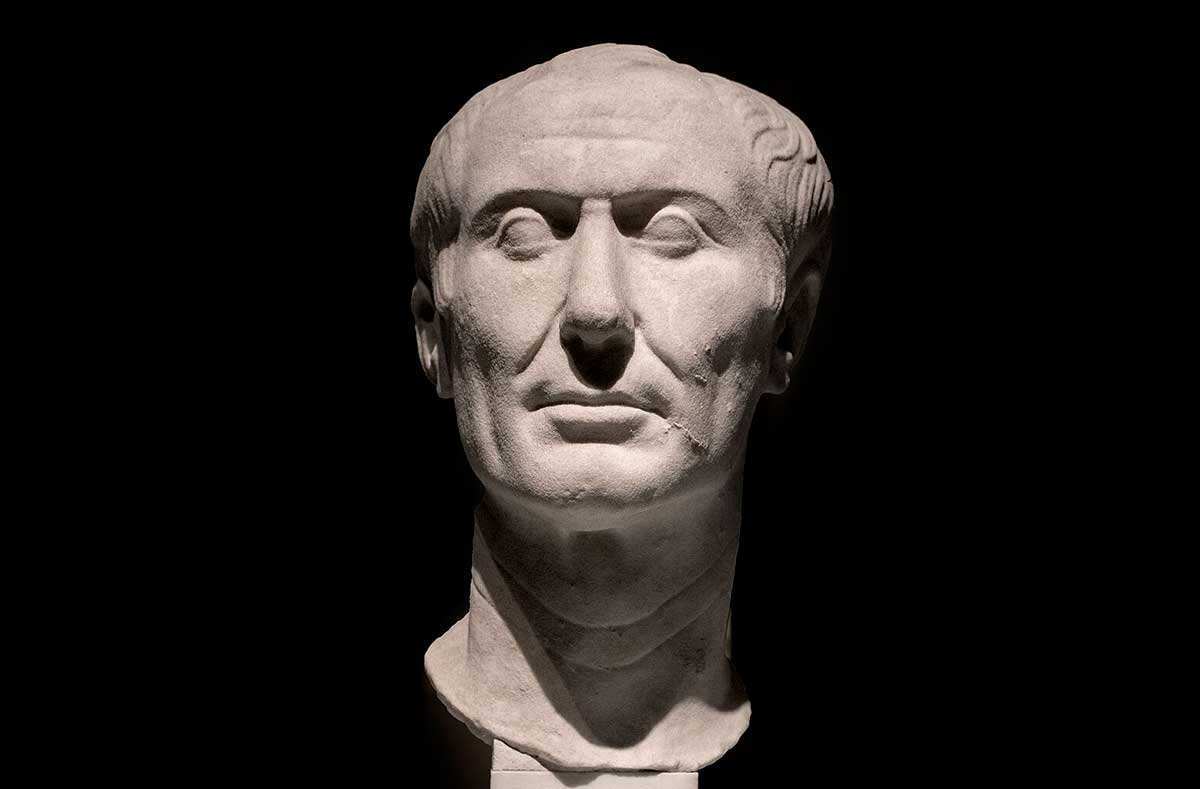
Following his quick victory against Pontus (leading to the famous veni vidi vici—“I came, I saw, I conquered”) and the defeat of the last rebels in Africa, Julius Caesar returned to Rome. Backed by his legions, Caesar declared himself dictator for ten years in 46 BCE. He could now bypass the Senate and push for sweeping reforms—such as granting property to the veterans, redistributing land to the poor, canceling debts, and granting citizenship to foreigners. The reforms made Caesar incredibly popular among the soldiers and the masses but angered the elites, who feared the dictator’s absolute power.
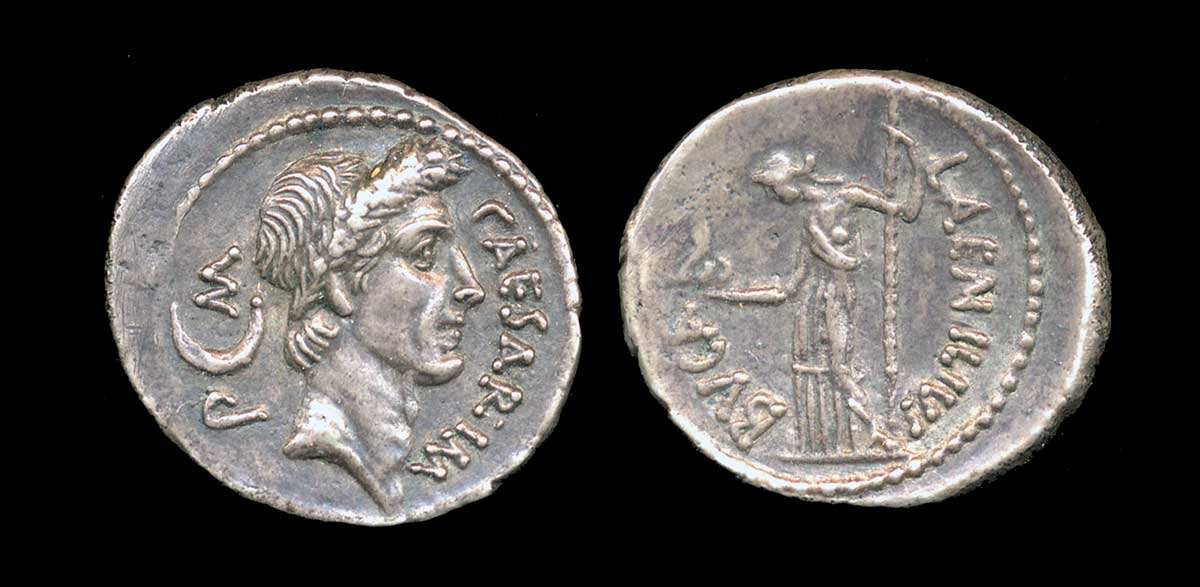
It did not help that Caesar created a cult of personality. In an unprecedented step, he put his image on the coinage (the first for a living Roman), made his birthday a public holiday, wore royal robes, and presided over the Senate meetings from a special golden chair, often forcing the senators to accept his proposals. In addition, Caesar put his statues in the temples and renamed Quintilis, the month he was born, into Julius (July). Lastly, Julius Caesar brought his mistress Cleopatra and their son Caesarion (a potential heir) to Rome as guests.
“Et tu, Brute?” Caesar’s Assassination
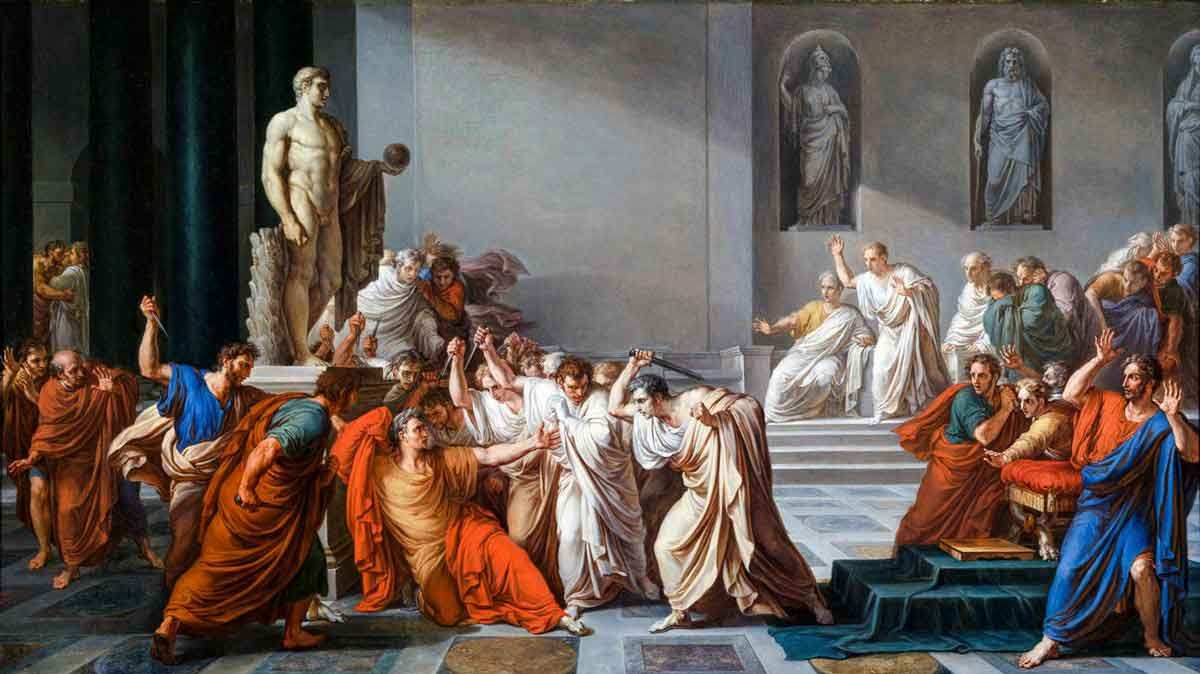
The Battle of Munda in 45 BCE, in which Caesar’s legions defeated forces led by Pompey’s sons, was his last victory. When Julius Caesar declared himself a “dictator for life” a year later, his enemies decided to strike. While most of the conspirators were former supporters of Pompey, they managed to win on their side two of Caesar’s closest allies—Marcus Junius Brutus and Cassius Longinus. But the time was running out as Caesar was preparing for what had to be his ultimate triumph—the war against Parthia.
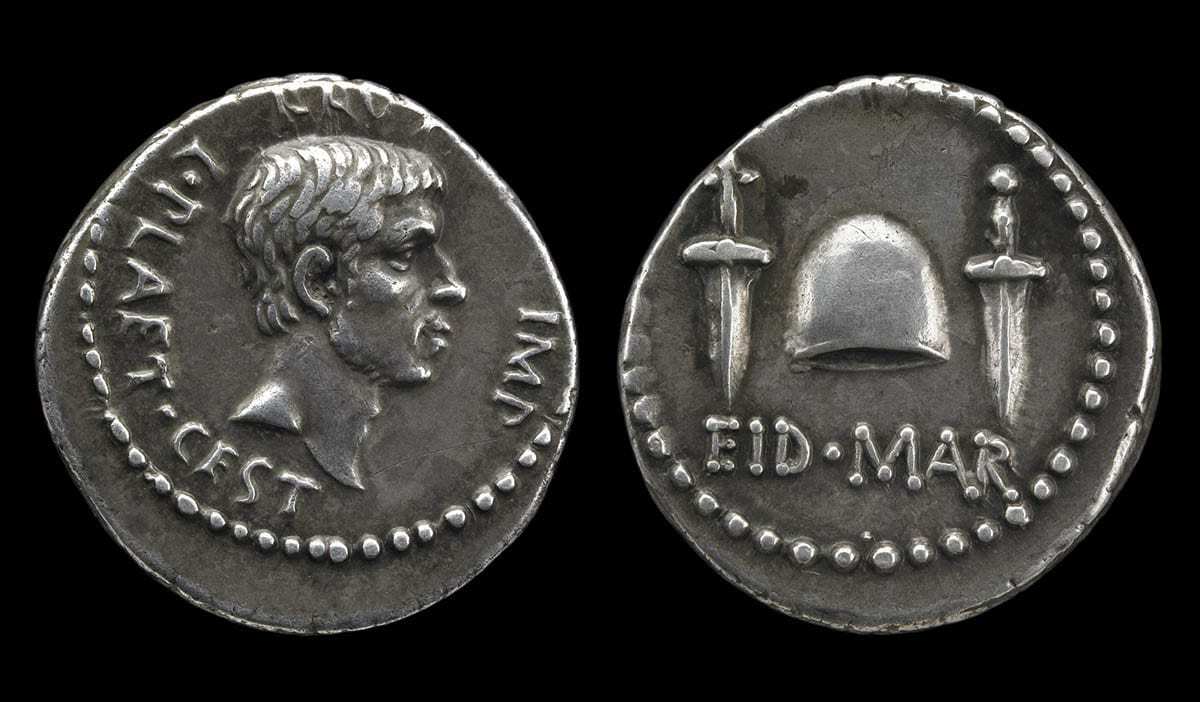
On March 15th, 44 BCE, the infamous “Ides of March,” Caesar, against the advice of his wife Calpurnia and his closest associate, general Mark Antony, arrived at the Senate. Almost poetically, the meeting place was the Curia of Pompey of the Theatre of Pompey, commissioned by Caesar’s late rival. Instead of a meeting, a bloodbath followed as conspirators drew their daggers. According to Suetonius, Brutus struck the first blow, prompting Caesar’s famous reply: Kai su teknon? (“You too, child?”). Twenty-three wounds later, the dictator-for-life lay dead.
Julius Caesar and His Lasting Legacy: The Roman Empire and Beyond
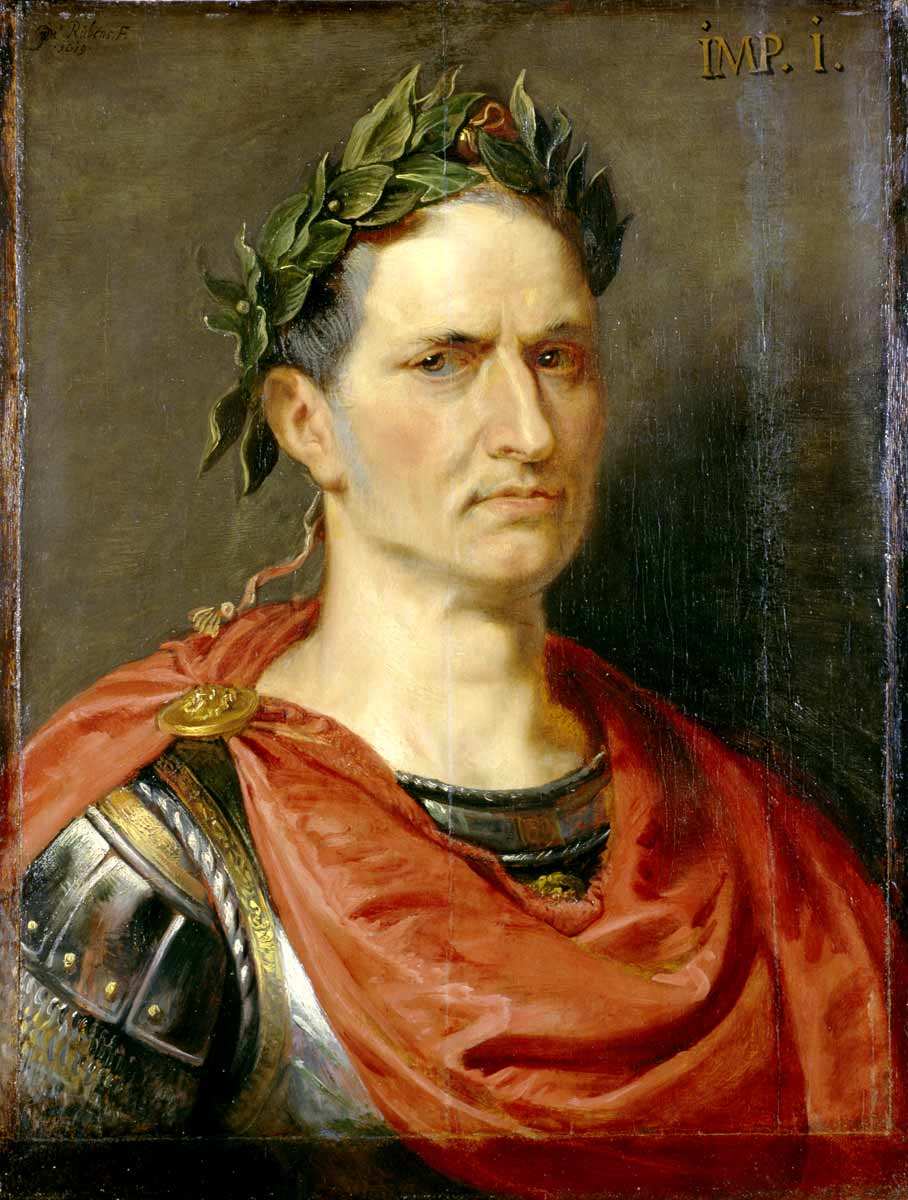
The conspirators—Liberatores—believed that by eliminating Caesar, they were saving the Republic, a fact clearly displayed on the so-called “Eid Mar” coin, which celebrated Caesar’s death. Instead, Caesar’s assassination backfired, leading to further civil wars and the Fall of the Republic. In the end, Caesar’s adopted son and heir, Octavian, emerged victorious, defeating Mark Antony and Cleopatra and the Battle of Actium in 31 BCE.
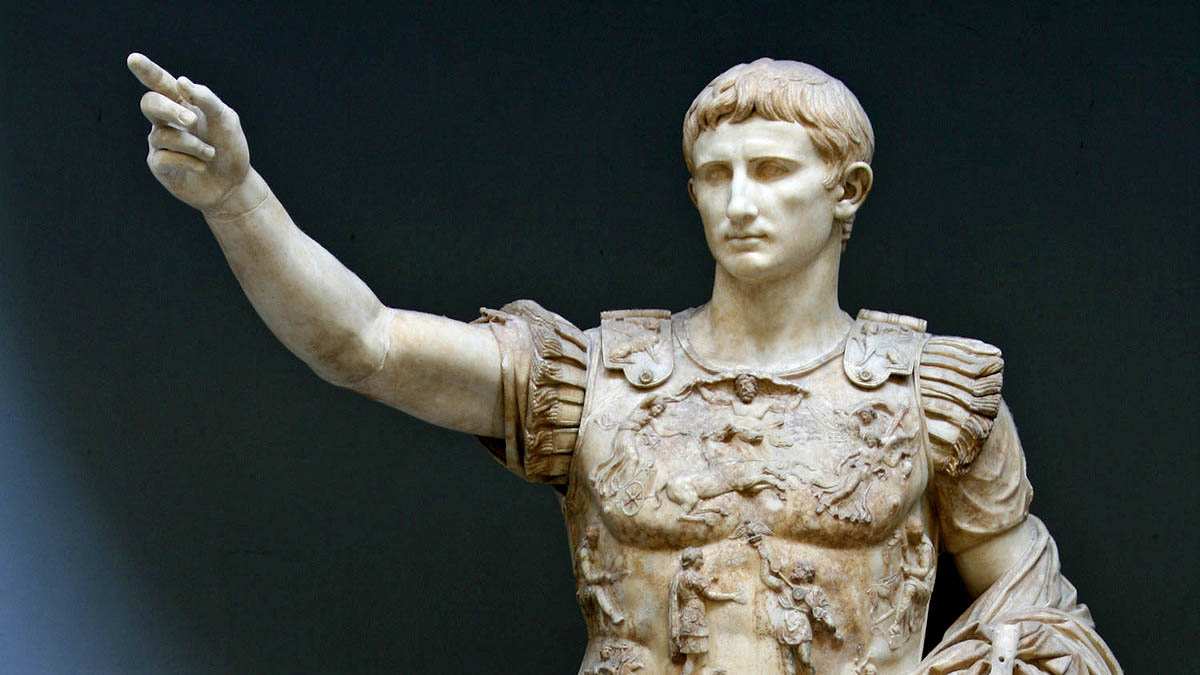
Then, in 27 BCE, Octavian, the sole ruler of Rome, became emperor Augustus, marking the beginning of the Roman Empire. He also founded the first imperial dynasty: the Julio-Claudians. In doing so, Augustus realized Caesar’s ambitions, laying a foundation for the absolute rule of the ancient superpower. While the emperors of the Julio Claudian dynasty added the cognomen Caesar to their name, the Roman emperors, from Galba onwards, used the title of Caesar to solidify their claim to the throne as an heir or as the ruler of the Empire.
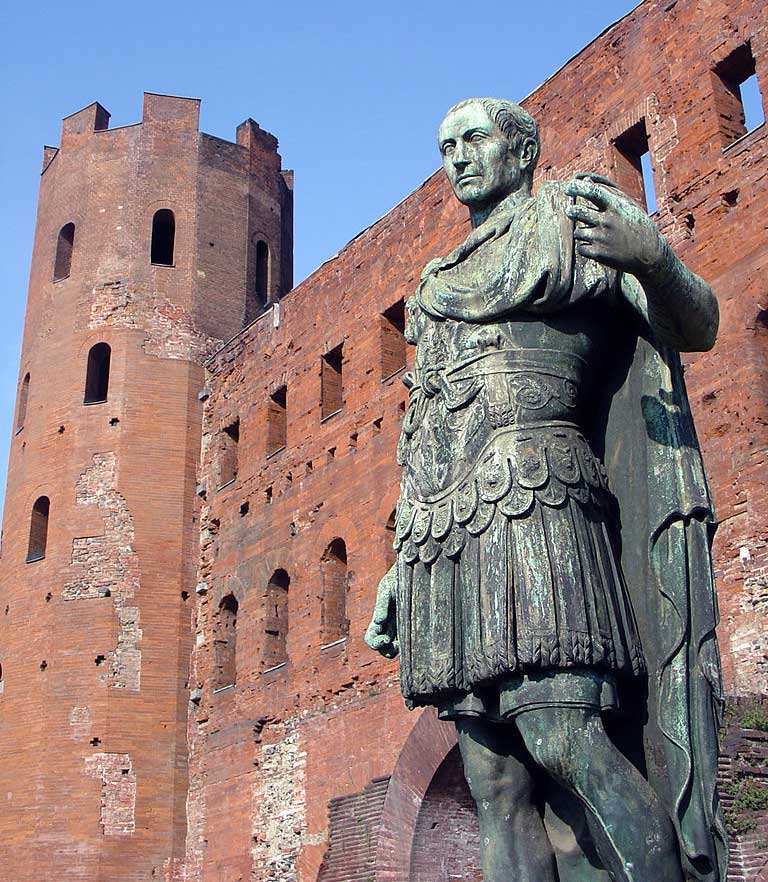
However, Julius Caesar’s legacy went beyond the Roman Empire, influencing both the medieval and modern world. His very name became synonymous with power and leadership, and it is still used in Slavic and German languages for the emperor (Czar/Tsar and Kaiser). Caesar’s writings give us insight into his famed military campaigns, which are still studied at the military academies. His calendar endured through centuries, becoming a basis for the Gregorian calendar (still used in the Orthodox Church as the Julian calendar).
Like his idol, Alexander the Great, Julius Caesar is rightly one of the most fascinating and admired historical figures, whose life story is a testament to ambition, power and greatness.
FAQ
Who was Julius Caesar in relation to his family background?
A scion of a prestigious Roman family, the gens Julia, Julius Caesar was one of the most powerful men in the Roman Republic.
What were Julius Caesar’s major achievements, and what ultimately led to his assassination?
Caesar formed the First Triumvirate, conquered Gaul, started and won the civil war, and took the first step in transforming the Republic into the Roman Empire. Julius Caesar left a lasting legacy, becoming one of most famous historical figures but his absolutist tendencies led to his assassination on the “Ides of March.”

